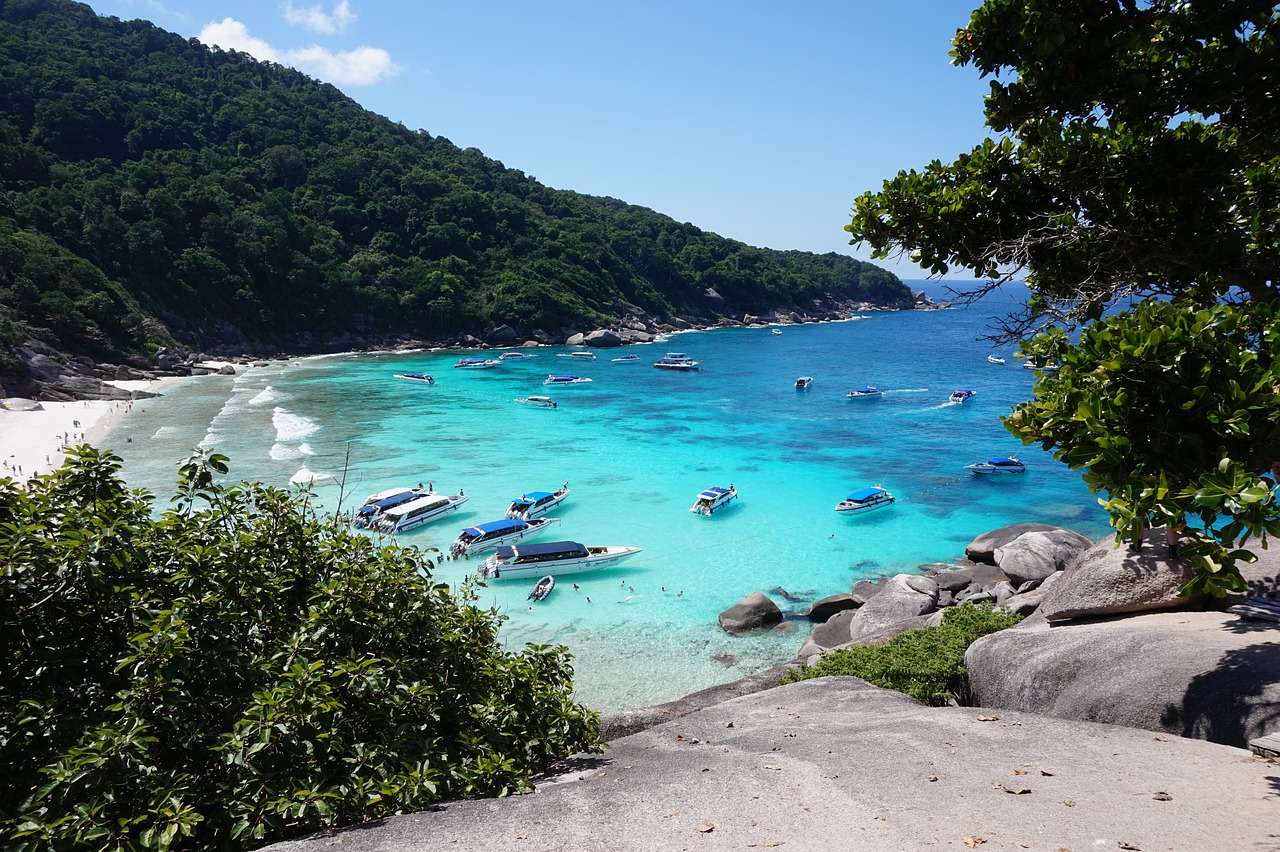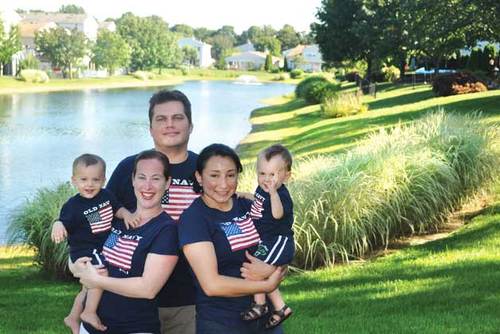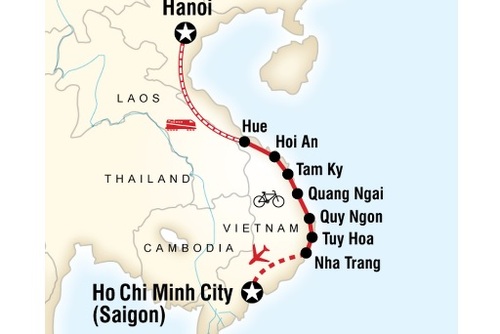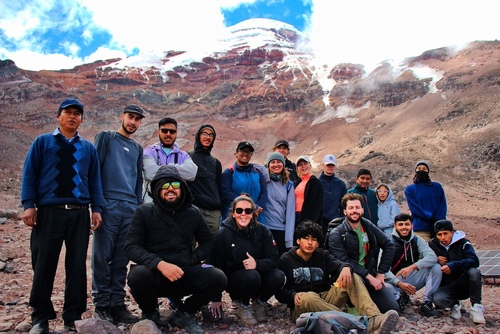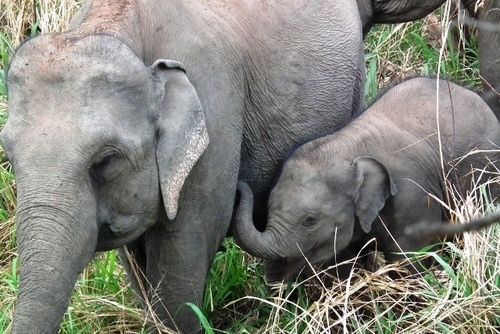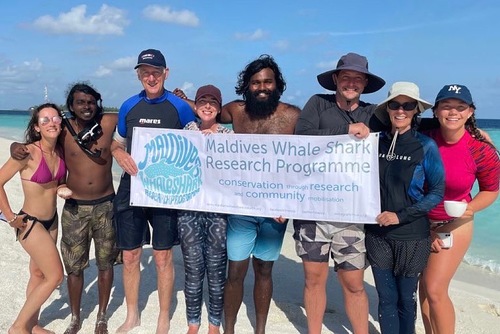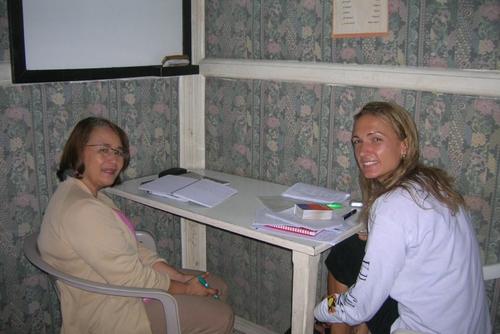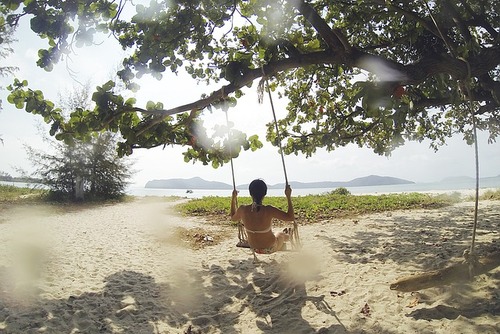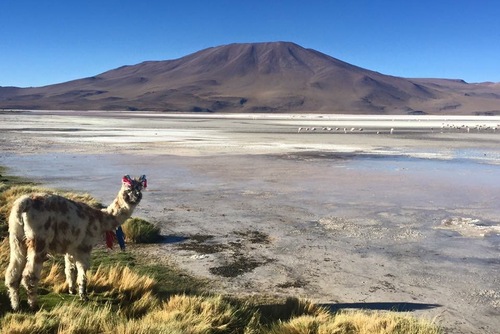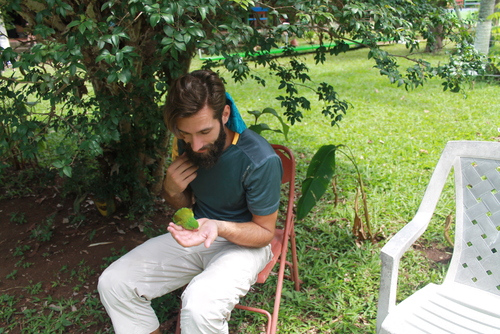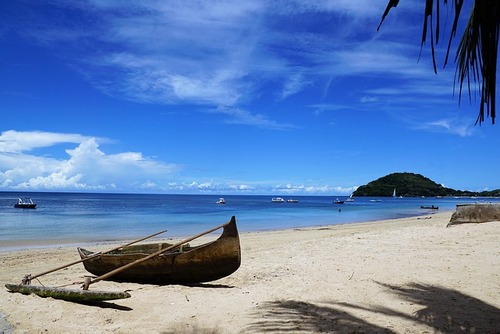A few months after I graduated university, I, like many other young people, made the choice to move abroad and teach English in a foreign country for a year.
It was scary, exciting, and awesome—and I may be a little biased, but I kinda think everyone should do it once in their life. It may sound corny, but my year in Thailand taught me things I didn’t even know I needed to learn, and I’m so grateful that I had that opportunity.
1. I learned how to communicate in very difficult circumstances
Let’s just take a minute to talk about that language barrier! I didn’t truly realize how much I rely on language and verbal communication for success in every aspect of my life, until I suddenly found myself in a country full of situations where my language was often useless.
I’m an English major; words are my everything. But when words literally failed me, I gained new ways to communicate and get through life. Pictures, gestures, intuition, imagination. I’m amazed at how much I was able to accomplish without language.
2. I learned how to be flexible and adaptable
When you’re on the job hunt, there are a few buzzwords you’ll probably hear quite frequently. “Flexibility” and “adaptability” are just two of them. Well, nothing in my life has taught me as much flexibility and adaptability as living and teaching in Thailand.
Every morning was a new adventure - I would approach my day with my carefully-written lesson plans, I’d launch right into teaching a class, only to be interrupted 10 minutes in to hear “Today the students have vaccinations.” Or - “Today the students have activities. No class all morning.”
Or I’d come to school in the morning ready to sit at my desk and lesson plan all morning because my first class wasn’t until after lunch, but then I’d hear “Can you teach first period today instead?” It can be stressful, but at the end of the day, you’ll be so proud of yourself for the flexibility skills you’ve learned.
3. I learned about a different culture
This one might seem obvious, but learning about Thailand’s culture was actually much harder than I expected it to be—turns out, it’s pretty hard to talk politics and religion and cultural nuances when you don’t share the same language. It was a constant struggle of seeing something new and confusing, asking someone for an explanation, struggling to understand their explanation.
For example: when I was in Thailand, I noticed a lot of people carrying around strange, life-size dolls. I didn’t understand it until I stumbled upon an article on mashable explaining the trend. After a year, I was still asking my Thai friends “why do you do this?” on the day I flew out of Thailand. There was so, so much to take in, but I feel lucky that I was able to absorb what I did!
4. I learned about my own culture
On the flip side, seeing my own country from the eyes of an outsider showed me things that I’d never thought about before. I saw new negativities about the United States, yes, but I also saw privileges and positivity that I’d never fully appreciated before.
I met Europeans who were just as excited to travel in America one day as I am to travel in Europe one day! When I came back to the States, I saw my familiar world with new eyes, and it was unbelievably exciting.
5. I learned how to work in an environment that wasn’t ideal
Education reform is a crucial issue in Thailand right now, and students and teachers alike are struggling to do the best they can with what they’ve got.
The Thai school system is very different than what I’ve experienced in the Western world of education. This means that every day I came to work and had to deal with the fact that I was often expected to teach with methods that didn’t fit my opinions of how to be a good teacher.
The first school I worked at in Thailand was exceptionally problematic; my foreign coworkers and I faced a lot of challenges in balancing our expectations with those placed on us by our Thai coworkers, and often found ourselves feeling unsupported throughout our work experience.
From the little things, like struggling with the copy machines, to the big things, like feeling physically incapable of planning and teaching for the number of hours we were given - it was a struggle.
But we made it through, and felt proud of ourselves for the personal successes we achieved in less-than-ideal circumstances. The negative experiences at that school made me appreciate it so much more when I worked in a much better, more supportive school for the second semester.
6. I learned how to relax, to take things in stride
There’s a phrase in Thailand that you’ll hear everywhere: mai bpen rai. It doesn’t have a direct English translation, because it is used in so many circumstances, but I usually tell people that it basically means “no worries” – never mind, you’re welcome, it’s okay, don’t worry about it. You’ll hear it in response to “thank you” and “I’m sorry” and “this sucks and I don’t like it” – oh, mai bpen rai.
Sometimes it’s frustrating because it seems so dismissive, but when I embraced the “mai bpen rai” culture, I found it to be life changing. As an American college student who juggled part time jobs (yes, plural) and extracurricular activities with a full time class schedule, I was stressed and frazzled to the max for my entire adult life.
When I moved to Thailand and learned how to take a deep breath and say, “no worries” when things were outside of my control, it did wonders for my mental health and happiness.
7. I learned how to be a better teacher
…But I didn’t usually feel like I was getting better. I often worried that I wasn’t really teaching my students anything. I felt like my classroom management skills were zilch. Sometimes I’d have a good day, and then I’d have four bad days where it seemed like nothing I said was sticking.
But then I’d have review sessions and my students would wow me with how much they’d maintained. I’d get notes and cards from students that made me want to cry with happiness at how much they’d gained from me as a teacher. It still doesn’t always feel like I became a better teacher, but I know I did.
8. I learned how to be a better friend
Gaining new friends while traveling is easy, but maintaining valuable friendships with the people you meet while traveling can be challenging. Maintaining friendships at home while you’re overseas is even more challenging. Balancing communication across different time zones is hard, and staying sensitive to each other’s completely different life circumstances is difficult.
I made some mistakes in my time abroad, and some of my friendships suffered because of it—but because of that, I learned about the characteristics that make up a good friend. I hope to take that knowledge with me into the future both as I choose high quality friends and as I make myself into a person worthy of being a good friend.
9. I learned how to drive a motorbike
Let’s put a fun one on the list!
When I was a teenager, I had a horrible bicycle accident, and I’ve been afraid of anything two-wheeled ever since. Give those two wheels a motor and I was absolutely petrified of it. But I faced my fear, and learning how to ride a motorbike opened up so many possibilities for exploration and adventure throughout my travels.
My favorite thing about my time in Thailand was definitely my motorbike (and most of my friends agree). Seriously, nothing beats that feel of the breeze on your face when you’re on a motorbike. Nothing.
10. I learned about myself
I’ve saved the cheesiest for last. What a trope it is: traveling abroad, losing yourself to find yourself.
I guess it’s trite because it’s true; when I found myself uprooted and displaced into an environment where nothing was familiar and I had nothing around me that I used to identify myself with, it forced me to learn about who I am when I’m not surrounded by all the people, places, and things that had made up my life thus far.
What I found was simultaneously terrifying and exciting, and I can honestly say that of all the cool people I’ve met in my life, getting to know myself was the coolest.
By Mary Beth Cancilla
Related Pages

